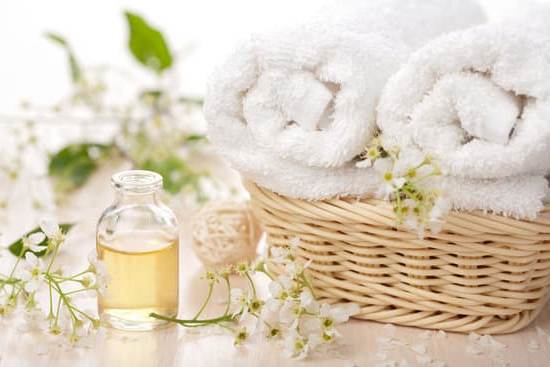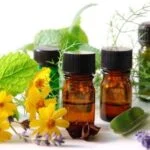How does aromatherapy treat depression? Depression is a common mental health issue that can have a significant impact on an individual’s well-being.
Aromatherapy, the use of essential oils to promote physical and psychological well-being, has gained attention as a complementary therapy for managing depression. This article aims to explore the science behind aromatherapy and its effects on the brain, the best essential oils for depression treatment, techniques for using aromatherapy to improve mood, and research supporting its use as a treatment for depression.
Depression is characterized by persistent feelings of sadness, loss of interest or pleasure in activities, and other symptoms that can interfere with daily life. Aromatherapy is believed to have a positive impact on mood and emotional well-being through the inhalation or topical application of essential oils derived from plants. Understanding the potential of aromatherapy in treating depression involves delving into the science behind how it affects the brain and emotions.
In this article, we will discuss the mechanisms by which aromatherapy may help alleviate symptoms of depression and improve overall mood. We will also explore the different essential oils recommended for depression treatment, as well as precautions and considerations when using aromatherapy as part of a holistic approach to manage depression.
The Science Behind Aromatherapy and Its Effects on the Brain
How Aromatherapy Works on the Brain
Aromatherapy works by stimulating the olfactory system, which is the part of the brain connected to smell. When you inhale essential oils, the aroma travels through the olfactory nerves and impacts the limbic system – the part of your brain that controls emotions, mood, behavior, and memory. This can lead to a release of chemicals such as serotonin, which can help improve mood and reduce symptoms of depression.
Effects on Neurotransmitters
Some essential oils have been shown to have an impact on neurotransmitters in the brain. For example, studies have found that certain essential oils can increase levels of dopamine and norepinephrine, which are neurotransmitters associated with feelings of happiness and pleasure. By influencing these neurotransmitters, aromatherapy may be able to improve mood and alleviate symptoms of depression.
Stress and Anxiety Reduction
Aromatherapy has also been found to have a calming effect on the brain, reducing stress and anxiety levels. This is important for individuals struggling with depression, as stress and anxiety can exacerbate depressive symptoms. By promoting relaxation and reducing stress, aromatherapy may help in managing depression. Overall, research into how does aromatherapy treat depression indicates that the effects could be significant in helping individuals manage their condition.
Essential Oils for Depression
When it comes to using aromatherapy for the treatment of depression, choosing the right essential oils is crucial. Certain essential oils have been found to have a positive impact on mood and can help reduce symptoms of depression. Here are some of the best options for aromatherapy treatment:
1. Lavender: Lavender oil is known for its calming and relaxing properties. It has been shown to reduce anxiety and improve sleep, making it an excellent choice for those dealing with depression.
2. Bergamot: Bergamot oil has a citrusy, uplifting scent that can help improve mood and reduce stress. It is often used in aromatherapy to promote feelings of happiness and wellbeing.
3. Ylang Ylang: Ylang ylang oil has a sweet, floral scent and is often used to relieve stress, anxiety, and depression. It can help promote relaxation and a sense of calm.
4. Chamomile: Chamomile oil has a soothing, calming effect on the mind and body. It can help reduce feelings of irritability and promote better sleep, which can be beneficial for those struggling with depression.
5. Frankincense: Frankincense oil has been used for centuries to promote emotional balance and relieve symptoms of anxiety and depression. Its woody, earthy scent is known for its grounding properties.
When using essential oils for the treatment of depression, it is important to choose high-quality, pure oils from reputable sources. These oils can be used in a variety of ways, including diffusing them into the air, inhaling them directly from the bottle or applying them topically (diluted with a carrier oil) to pulse points or areas of tension.
It’s important to note that while aromatherapy can be a helpful tool in managing symptoms of depression, it is not a substitute for professional medical treatment. Aromatherapy should be used as part of a comprehensive treatment plan that may also include therapy, medication, exercise, and other self-care practices. Always speak with your healthcare provider before using aromatherapy as a treatment for depression.
How Aromatherapy Can Improve Mood and Reduce Symptoms of Depression
Aromatherapy has been gaining attention as a potential treatment for depression due to its ability to improve mood and reduce symptoms of this mental health condition. The use of essential oils in aromatherapy has shown promising results in alleviating feelings of sadness, hopelessness, and anxiety that are commonly associated with depression.
Impact on Brain Chemistry
Research suggests that certain essential oils used in aromatherapy can have a direct impact on brain chemistry. For example, the scent of lavender has been found to increase the activity of certain neurotransmitters like serotonin and dopamine, which play a crucial role in regulating mood and emotions. This increase in neurotransmitter activity can lead to an overall improvement in mood and a reduction in depressive symptoms.
Stress Reduction and Relaxation
Aromatherapy also promotes relaxation and reduces stress, which are important factors in managing depression. When essential oils are inhaled or applied topically, they can trigger the release of endorphins, the body’s natural “feel-good” chemicals. This can help individuals feel more relaxed, calm, and at peace, leading to a decrease in symptoms of depression such as irritability and restlessness.
Enhanced Sleep Quality
One common symptom of depression is disrupted sleep patterns. Aromatherapy has been found to improve sleep quality by helping individuals relax and unwind before bedtime. Essential oils like chamomile and ylang-ylang have sedative properties that can promote better sleep, which in turn can positively impact overall mood and energy levels during the day. So if you’re wondering how does aromatherapy treat depression, consider these benefits on mood improvement as part of the answer.
Aromatherapy Techniques
Aromatherapy encompasses a variety of techniques for using essential oils to improve mood and overall well-being. The use of these essential oils can be applied in different ways, including diffusing, inhalation, and topical application.
- Diffusing: One popular method for using essential oils in aromatherapy is through diffusion. This involves dispersing the essential oil particles into the air through a device such as an electric diffuser or reed diffuser. The aroma then fills the room, allowing for easy inhalation and absorption of the oil’s properties.
- Inhalation: Another common technique is directly inhaling the aroma of essential oils. This can be done by simply opening a bottle of the oil and taking deep breaths or by adding a few drops to a bowl of hot water and breathing in the steam. This method allows for quick absorption of the oil’s benefits through the olfactory system.
- Topical Application: Essential oils can also be applied topically to the skin after being diluted with a carrier oil. When massaged onto specific areas of the body, such as on pulse points or pressure points, the oils are absorbed into the bloodstream to exert their therapeutic effects.
These different methods of using essential oils in aromatherapy allow individuals to customize their treatment approach based on personal preferences and specific needs. Whether it’s through filling a room with a soothing aroma, directly inhaling an uplifting scent, or applying oils directly to the skin, aromatherapy offers versatile options for addressing symptoms of depression and promoting emotional well-being.
In addition to understanding these techniques, it’s important for those considering aromatherapy for depression treatment to seek guidance from qualified professionals to ensure safe and effective use. With proper knowledge and care, aromatherapy can be an accessible and beneficial complementary approach to managing symptoms of depression alongside other treatment methods.
Combining Aromatherapy With Other Treatment Methods for Depression
When it comes to treating depression, a multi-faceted approach is often the most effective. Aromatherapy can be a valuable addition to traditional treatment methods for depression, such as therapy and medication. By combining aromatherapy with other treatment methods, individuals may experience more comprehensive relief from their symptoms.
One way that aromatherapy can be combined with other treatment methods for depression is through the use of essential oils during therapy sessions. Many mental health professionals incorporate aromatherapy into their practice by using diffusers or topical application of essential oils to create a calming and soothing environment for their clients. This can enhance the effectiveness of talk therapy and provide additional support for those dealing with depression.
Another way to combine aromatherapy with other treatment methods for depression is through self-care practices. For example, individuals undergoing medication treatment for depression can supplement their regimen with aromatherapy techniques at home. Aromatherapy can be used as a form of relaxation and stress reduction, which complements the effects of medication in managing depressive symptoms.
Additionally, combining aromatherapy with other treatment methods for depression can also involve incorporating complementary practices such as yoga or meditation. These activities can be enhanced by the use of essential oils during sessions, further promoting relaxation and emotional balance. When used in conjunction with these activities, aromatherapy can offer holistic support for individuals managing depression.
| Benefits | Information |
|---|---|
| Incorporates aromatherapy into therapy sessions | Enhances calming and soothing environment |
| Supplements medication treatment with aromatherapy | Promotes relaxation and stress reduction |
| Enhances yoga or meditation practices | Promotes emotional balance and well-being |
Research and Studies
Over the years, there has been a growing interest in the use of aromatherapy as a treatment for depression. Numerous research studies have been conducted to understand the effectiveness of aromatherapy in managing symptoms of depression, and the results are indeed promising.
One study published in the Journal of Alternative and Complementary Medicine found that inhaling the aroma of lavender essential oil was effective in reducing depressive symptoms in participants. The calming and sedative effects of lavender oil were believed to have contributed to its antidepressant properties.
Another study, published in the International Journal of Neuroscience, examined the effects of citrus fragrance on mood and stress levels. The results showed that inhalation of citrus fragrance had an immediate positive effect on mood enhancement and stress reduction. This further highlights the potential of aromatherapy in improving mental well-being, particularly in individuals struggling with depression.
Furthermore, a review article published in Evidence-Based Complementary and Alternative Medicine analyzed several clinical trials and observational studies on the use of aromatherapy for depression. The findings suggested that certain essential oils, such as bergamot, chamomile, and ylang-ylang, exhibited antidepressant effects when used in aromatherapy. These studies provide evidence supporting the use of aromatherapy as a complementary approach for managing depression symptoms.
Precautions and Considerations
When using aromatherapy as a treatment for depression, it is important to take certain precautions and considerations into account to ensure its safe and effective use. While aromatherapy can be a beneficial complementary therapy for managing depression, it is not a substitute for professional medical advice or treatment. It is always essential to consult with a healthcare provider before incorporating aromatherapy into your depression treatment plan.
One crucial consideration when using aromatherapy for depression is the selection of essential oils. Some essential oils may have contraindications with certain medications or medical conditions, so it is vital to research and choose oils carefully. Additionally, some essential oils may cause skin irritation or allergic reactions, so it is advisable to perform a patch test before using them topically.
Another important precaution to take when using aromatherapy for depression is the method of application. Different methods such as diffusion, inhalation, and topical application have varying effects on individuals. For example, inhaling certain essential oils may trigger respiratory issues in some people, while others may experience skin sensitivity when using them topically. Understanding how each method works and its potential impact on individual health is crucial in ensuring safe and effective use of aromatherapy for treating depression.
In addition to selecting the right essential oils and applying them safely, it is also important to use aromatherapy in moderation. Excessive exposure to strong aromatic compounds may lead to headaches, nausea, or other adverse effects. Therefore, it’s important to follow recommended usage guidelines and seek guidance from a qualified aromatherapist or healthcare professional on proper dosages and frequencies when using aromatherapy for depression treatment.
Conclusion
In conclusion, aromatherapy offers a promising approach to managing depression. The science behind aromatherapy and its effects on the brain have shown that certain essential oils can help improve mood, reduce symptoms of depression, and promote a sense of well-being. Research and studies have provided evidence supporting the use of aromatherapy as a treatment for depression, with many individuals reporting positive results from incorporating this holistic practice into their mental health regimen.
It is important to note that while aromatherapy can be beneficial for managing depression, it should not be used as a sole treatment method. Combining aromatherapy with other treatment methods such as therapy, medication, and lifestyle changes can provide a comprehensive approach to addressing depressive symptoms. By working in conjunction with traditional treatments, aromatherapy can enhance overall well-being and improve mental health outcomes for individuals living with depression.
Overall, while more research is needed to fully understand how does aromatherapy treat depression, the potential benefits are evident. When used safely and in combination with other treatment methods, aromatherapy has the potential to offer relief from symptoms of depression and contribute to an improved quality of life for those struggling with this mental health condition. As with any treatment approach, it is important for individuals to consult with healthcare professionals before beginning an aromatherapy regimen for managing their depression.
Frequently Asked Questions
How Does Aromatherapy Relieve Depression?
Aromatherapy helps relieve depression by stimulating the olfactory system, which in turn affects the brain’s limbic system responsible for emotions and memories. Certain essential oils like lavender and bergamot can help reduce stress and anxiety, thus improving mood.
Why Is Aromatherapy Good for Mental Health?
Aromatherapy is good for mental health because it can help reduce stress, anxiety, and depression symptoms. Inhaling certain essential oils can promote relaxation, improve sleep quality, and boost overall emotional well-being. The soothing scents of aromatherapy can have a calming effect on the mind.
How Does Aromatherapy Treatment Work?
Aromatherapy treatment works by using essential oils derived from plants to promote physical and psychological well-being. These concentrated oils are often inhaled or diluted and applied to the skin during massages.
The aroma of these oils stimulates the smell receptors in the nose, sending messages to the limbic system of the brain, which is involved in regulating emotions and memory. This process can lead to various therapeutic effects such as relaxation, improved mood, and reduced stress levels.

Are you looking for a natural way to improve your health and wellbeing?
If so, aromatherapy may be the answer for you.





